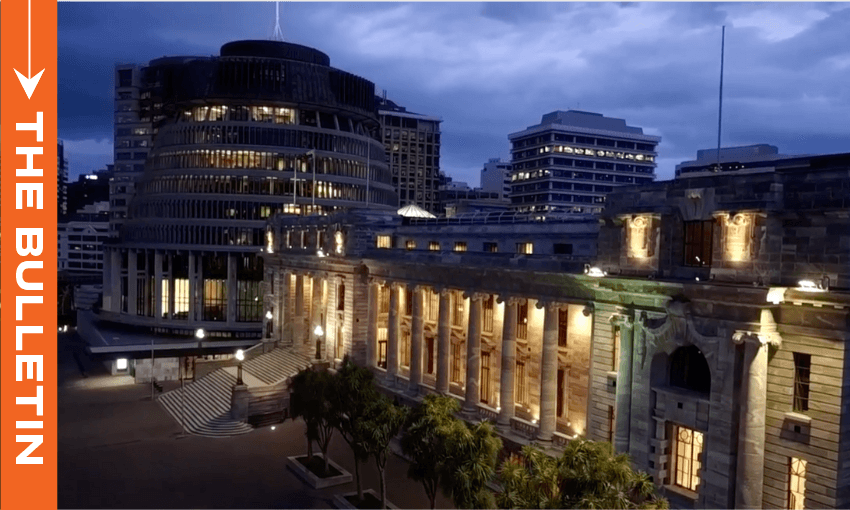Bills to remove the Reserve Bank’s employment mandate, repeal Fair Pay Agreements law and scrap the clean car discount were introduced yesterday, writes Anna Rawhiti-Connell in this excerpt from The Bulletin, The Spinoff’s morning news round-up. To receive The Bulletin in full each weekday, sign up here.
Maiden speeches begin proceedings before three bills introduced
Three new MPs gave their maiden speeches yesterday, including Hana-Rawhiti Maipi-Clarke, Tākuta Ferris and Tim Costley. Maipi-Clarke promised to hold the government to account, which she says is “attacking” her personally as Māori. The Herald’s Michael Neilson reports that Ferris “deviated from the traditionally personal maiden speech to assert in no unclear terms Māori had never given up sovereignty.” Costley spoke about his time in Afghanistan, where he lost some friends and pledged to be the voice of first responders in the House. Following the speeches, bills to remove the Reserve Bank’s employment mandate (more on that below), repeal the Fair Pay Agreements law and scrap the clean car discount were introduced as the House went into urgency. Transport minister Simeon Brown also announced that he’d taken the first steps toward halting blanket speed limit reductions.
New poll shows support for NZ First has grown
With Christopher Luxon in Australia to attend his daughter’s graduation, Winston Peters was acting prime minister yesterday and, as the Herald’s Claire Trevett reports (paywalled), is “never happier than when there’s a fight to be had”. Peters rose to the occasion yesterday, no doubt buoyed by a new Curia poll done for corporate clients that shows support for NZ First has overtaken support for Act, support for Christopher Luxon dropping a bit and gain for Te Pāti Māori.
A defence of regularity impact statements
Following Luxon’s comments on the AM show about regulatory impact statements (RIS) being a “huge waste of time”, particularly when it comes to the repeal of legislation, and news that the government was suspending the RIS for parts of its 100-day plan, Henry Cooke has written a defence of this admittedly dry-sounding work. He notes the new government’s desire for momentum and speed compares neatly with the 2017 Labour government’s similar desire. As outlined by Treasury, RIS “provides a high-level summary of the problem being addressed, the options and their associated costs and benefits, the consultation undertaken, and the proposed arrangements for implementation and review.” Cooke writes that the RIS is important for scrutiny from all quarters and public understanding of law change.
Treasury publishes RIS for RBNZ mandate change law
As Newsroom’s Jono Milne reports, Treasury “quietly posted on The Treasury website this week” the RIS for the legislation introduced yesterday to get rid of the Reserve Bank’s (RBNZ) dual mandate to focus on both bringing down inflation and unemployment. In “dry language that could have been spoken by Sir Humphrey Appleby [Yes, Minister], it says: “The Treasury puts significant weight on the value of a stable and enduring legislative regime for the Reserve Bank, which supports public and market confidence in the independence of the institution.” Treasury questions the premise of getting rid of the “dual mandate” and says if the government must do it, it would be “preferable” to use the Monetary Policy Committee Remit to provide guidance rather than “take a sledgehammer to the Reserve Bank Act”.
